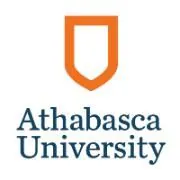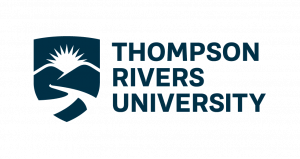Computer science continues to be one of Canada’s most versatile fields. With rising demand for skilled tech professionals in the age of artificial intelligence, a degree in computer science from a top university can lead to high-paying, high-growth roles in software engineering, data science, cybersecurity, AI, and more.
At the same time, online and hybrid learning have become essential options in Canadian higher education, as more students are choosing flexible, career-focused programs that fit their lives. Computer science is uniquely suited to online delivery: Coding, debugging, and collaborating remotely are already part of the job, which means students can build real-world experience without being tied to a classroom. (You can learn more about what careers you can get with a computer science degree here.) This crop of competitive online computer science bachelor’s degrees offers a more in-depth education alternative to coding bootcamps.
This ranking features the top online computer science degree programs in Canada, including those delivered entirely online, and hybrid options that combine virtual coursework with some in-person learning. Whether you’re just starting out in the field or upskilling to career switch, these programs offer the structure, flexibility, and credibility you need to launch or advance your career in tech.
CourseCompare’s annual school rankings are determined using a process that considers several core metrics and principles. Read more about our methodology here.
Athabasca University

Athabasca University, established in 1970, is Canada’s foremost institution dedicated to online distance education. As one of Alberta’s four comprehensive academic and research universities, Athabasca has pioneered flexible, accessible learning opportunities for students across Canada and beyond for more than 50 years.
The Bachelor of Science in Computing and Information Systems is a fully online program designed to provide students with the skills needed to develop and manage computer-based systems in various sectors, including business and education. The program offers a blend of computer science and information systems courses, allowing students to tailor their education to their interests and career goals.
Athabasca University reports a 91 percent employment rate among graduates of this program, with a median income of $89,000. The program’s flexibility and comprehensive curriculum make it an attractive option for those seeking to advance their careers in the IT industry.
What Sets Athabasca’s Program Apart
Athabasca’s computing degree stands out first and foremost for its flexibility. Delivered online for self-paced study, students can enrol at any time on a rolling basis, and complete coursework as their schedule allows.
The curriculum covers software development, networking, databases, systems and information management, and it offers a wide range of minors, including: Applied Mathematics; Artificial Intelligence and Machine Learning; Business Administration; Computing; Finance Management; Game Design and Development; Game Programming; Geoscience; Information Systems; Learning Technology; and Web Development.
Prior diplomas in science or computing may qualify you for up to 60 transfer credits. The program wraps up with a capstone project that applies learning to real-world scenarios.
Locations
Online
Thompson Rivers University

Established in 1970, Thompson Rivers University (TRU) in Kamloops, British Columbia is well known for its commitment to accessible education. Through its Open Learning division, TRU offers a range of distance education programs, including the Bachelor of Computing Science, catering to students across Canada and worldwide.
Students who enter the Bachelor of Computing Science program are equipped with a comprehensive understanding of computing principles and practices. Coursework covers areas such as programming, data structures, algorithms, software engineering, and computer systems. The program’s structure allows for flexibility, accommodating full-time students and working professionals.
TRU’s Open Learning model emphasizes self-paced study, enabling students to progress through courses at their own speed. This approach is particularly beneficial for those balancing education with other commitments. The university supports students through various resources, including academic advising and access to online learning tools. With an employment rate of 87 percent among TRU’s computing science graduates based on BC Student Outcomes data from 2022-24, with a satisfaction rate of 85 percent and a median annual salary of $68,645.
What Sets TRU’s Program Apart
TRU’s Open Learning Bachelor of Computing Science is fully online, self-paced, and offers open enrolment. Students can start any time of year without waiting for a new term. TRU takes the dedication to customized learning a step further, with course-by-course flexibility and an extended support system designed for independent learners. While the learning is self-directed, TRU provides structured course guides, tutor support, and access to career planning tools.
The program itself covers a wide range of topics, including programming, data structures, algorithms, software engineering, computer systems, networking, cybersecurity, databases, and web development. Students also have access to electives in mobile computing and data analytics.
Locations
Online
Université TÉLUQ

For those seeking a full French-language program in computer science delivered entirely online, Université TÉLUQ offers one of the most flexible and accessible options in Canada. A member of the Université du Québec network, TÉLUQ specializes in distance education and serves more than 20,000 learners annually across its 140+ online programs.
The Bachelor of Computer Science program provides a broad foundation in areas such as software engineering, artificial intelligence, data science, and network security. Students work through the curriculum at their own pace, making the program especially appealing to those balancing academic goals with work or family responsibilities.
TÉLUQ’s fully online model has been developed and refined over decades making high-quality, French-language computer science education accessible from anywhere. Each student is assigned a personal advisor (conseiller aux études) to support them throughout their academic path.
What Sets TÉLUQ’s Program Apart
TÉLUQ’s Bachelor of Computer Science is fully online, asynchronous, and delivered entirely in French, with no campus attendance required. Students can enrol anytime and move through courses at their own pace, making it a strong fit for those managing work or family responsibilities.
The curriculum covers five core areas: computer systems architecture, software and web development, artificial intelligence, data science, and network security. Courses teach programming in C++ and Python, algorithms, databases, cybersecurity, software engineering, human–machine interface design, and operating systems. Students also take advanced courses in machine learning, deep learning, and data warehousing, with the option to explore electives like XML systems, web development, and IT ethics.
Locations
Online
University of Fredericton (UFred)

Building on 20+ years of pioneering online business education, the New Brunswick-based University of Fredericton (UFred) has expanded its offerings to include a new Bachelor of Computer Science as of 2025. Much like its acclaimed BBA, MBA, and EMBA programs, this online comp sci degree has no on-campus requirements.
The program uses 8‑week course blocks and rolling admissions, so students can start any time and progress at their own pace. Curriculum development involved close industry consultation to prioritize hands-on, project-based learning. Students gain practical experience in coding, data analysis, cybersecurity, systems administration, and more, and apply their skills through real-world scenarios.
UFred’s model is built from the ground up for online delivery, offering weekly virtual classes, flexible deadlines, and ongoing support from student services and academic advisors.
What Sets UFred’s Program Apart
UFred’s Bachelor of Computer Science stands out for being purpose‑built from day one for online learners. With rolling admissions and 8‑week course blocks, students never wait for a semester and can finish at their own pace. The curriculum is hands-on and developed with industry input to ensure alignment with current workforce needs.
The program teaches students to develop software and web technologies; work with database systems, network architectures, and computer hardware; understand data structures, operating systems, and discrete mathematics; and apply programming languages to solve real-world problems. Its core courses and general electives include not just technical skill development but also crucial soft skills such as collaborative work, decision-making logic, and critical thinking.
UFred provides consistent weekly virtual classes, structured yet flexible deadlines, proactive academic advising, and a suite of online student services. The result is a professional-grade, career‑ready learning experience tailored to online adult learners.
Locations
Online
Algoma University

Algoma University, with campuses in Sault Ste. Marie and Brampton, offers an accelerated Bachelor of Computer Science for students who already hold a degree in another field. The program is available both online and on campus and can be completed in just 12 months.
Courses are delivered in compressed 4- to 6-week blocks and cover core topics including Java and C++ programming, data structures, databases (SQL, Oracle), assembly language, operating systems (Windows and Unix), scripting, and introductory mobile development. While the accelerated stream leads to a three-year Bachelor of Computer Science, students can opt to continue into a fourth year and earn an Honours Bachelor of Science. (This path requires early planning with an advisor.)
Online students benefit from small class sizes (typically 20 to 25), close faculty interaction, and structured academic support. With roughly 18 hours of class time and 36 hours of independent study per week, the workload is intensive and generally not suited to those working full-time. An important note: The co-op option is only available in person at the Brampton campus and has limited space.
Algoma also offers a Collaborative Online Bridging Program for students with computer science-related college diplomas. This pathway allows eligible applicants to complete a Bachelor of Computer Science (General) in roughly one year, starting online in the spring and summer, then transitioning to in-person classes in the fall.
What Sets Algoma’s Program Apart
Algoma’s accelerated stream is one of the fastest ways to earn a computer science degree in Canada. Designed for students with previous university education, it condenses three years of study into one, with both online and in-person formats available. Small cohorts create space for mentorship and deeper engagement, and students can pursue an optional fourth year for an Honours credential.
The bridging program is equally distinctive: few universities offer such a clear, time-efficient route for diploma holders to transition into a university computer science degree. By offering targeted, accelerated pathways for both university and college graduates, Algoma stands out for flexibility, speed, and accessibility.
Locations
Sault Ste. Marie, Brampton, and Online
Conestoga College

Founded in 1967, Conestoga College has grown from a small regional school into one of Ontario’s leading institutions. With a strong reputation for applied education and industry collaboration, it has consistently delivered programs that reflect real-world workforce needs—particularly in skilled trades, engineering, and IT.
The Honours Bachelor of Computer Science is a hybrid four-year degree that combines academic rigour with practical depth. Designed in consultation with employers, it focuses on building robust, secure, and scalable software systems—an area often underemphasized in more theory-heavy CS programs. Core topics include software quality assurance, cybersecurity, project management, cloud computing, and big data.
One of the program’s standout features is its built-in three paid co-op terms, giving students over a year of full-time, resume-worthy industry experience. This experiential model is key to Conestoga’s strong graduate outcomes: in 2023, the college reported a school-wide 90 percent graduate employment rate within six months, and an employer satisfaction rate exceeding 92 percent.
What Sets Conestoga’s Program Apart
A hybrid program, Conestoga’s Honours Bachelor of Computer Science offers a combination of in-person and online learning, providing flexibility to accommodate diverse learning preferences. Students gain hands-on experience through three paid co-op placements, enhancing their practical skills and industry readiness.
The curriculum emphasizes software testing, project management, and a strong awareness of security and privacy issues. Courses introduce students to current and emerging fields such as big data analysis, cybersecurity, cloud computing, and the Internet of Things. Multidisciplinary projects and applied learning activities are integrated throughout the program, fostering a deep understanding of computer science theory and its applications.
Locations
Kitchener-Waterloo, and Online
Seneca Polytechnic

Seneca Polytechnic in Toronto is one of Canada’s largest public colleges, offering a range of programs that emphasize practical, career-focused education. Established in 1967, Seneca has evolved to provide hybrid learning options, combining online and in-person instruction to accommodate diverse student needs.
The Bachelor of Computer Science program at Seneca is a three-year degree designed to equip students with both theoretical knowledge and hands-on experience in computing. The curriculum covers areas such as software development, cybersecurity, cloud computing, and human-centered design. A mandatory co-op work term, requiring a minimum of 420 hours, allows students to apply their learning in real-world settings, bridging the gap between academia and industry.
79.1 percent of all Seneca grads are employed within six months of graduating and have an employer satisfaction rating of 88.9 percent, reflecting the program’s emphasis on producing job-ready professionals equipped to meet industry demands.
What Sets Seneca’s Program Apart
Seneca’s Bachelor of Computer Science uses a hybrid delivery model—students take some courses (primarily foundational first year courses) fully in-person, some fully online, and some in a “flexible” blended format where classes are taught in-person and streamed live to remote learners.
The program covers a comprehensive range of topics such as algorithms, programming languages, database development, cloud computing, cybersecurity, user interface design, and machine learning, while embedding principles of equity, diversity, and inclusion throughout. A mandatory co-op work term (minimum 420 hours) gives students practical workplace experience before graduation. With a focus on building cross-functional skills in creative problem solving, business writing, collaboration, graduates are prepared for roles like software developer, data analyst, UX developer, and IT analyst.
Locations
Toronto, and Online
Centennial College

Founded in 1966 as Ontario’s first public college, Centennial has always prioritized practical, career-focused education. Its strong roots in applied learning and its deep ties to Toronto’s tech sector have made it a go-to institution for students who want more than lectures—they want real experience, real tools, and real results.
The Bachelor of Information Technology (Computer and Communication Networks) reflects that ethos. It’s the only four-year degree in Ontario built specifically around IT infrastructure, networking, and communications systems. Delivered in a hybrid format, the program blends the hands-on value of in-person labs with the flexibility of online coursework, ideal for students balancing school with work or commuting demands.
Students use industry-standard equipment, build practical skills in everything from cloud systems to wireless architecture, and complete a mandatory co-op placement to apply it all in the field. With consistent graduate employment rates above 85 percent across Centennial’s degree programs, and 80 percent school-wide, Centennial graduates regularly see success in the post-grad workplace.
What Sets Centennial’s Program Apart
Centennial’s Bachelor of IT in Computer and Communication Networks is Ontario’s only four-year degree focused exclusively on IT infrastructure, networking, and communication systems.
Based out of Toronto’s Progress Campus, the hybrid format combines flexible online lectures with in-person labs on routing, cloud systems, wireless networks, virtualization, VoIP, and cybersecurity, taught using industry-standard tools and hardware.
Students complete a paid co-op placement as part of the degree, supported by Centennial’s career services and a job board that connects learners with employers across Toronto’s thriving tech sector.
Locations
Toronto, and Online







